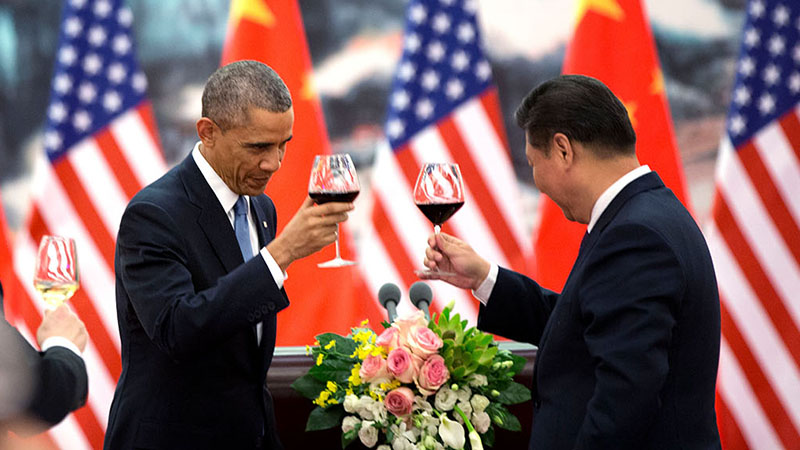As global temperatures tick up, the time till ratification of the Paris climate deal appears to be falling – with Brazil due to sign on Monday.
Reports from Beijing suggest the US and China will be next, perhaps before the G20 summit on 4-5 September. More on that meeting in Climate Home next week.
What happens then? Well, not much for a couple of years. Here’s a brief guide to what the ratification means and when the UN deal will be operational.
Meanwhile the world’s top climate scientists have started work on a new study into the impacts of warming above 1.5C, and potential pathways that could avoid that limit.
“With the hot year we feel 1.5C is coming down the barrel… it’s a world we’re going to have to adapt to and this will help us,” said Katherine Mach, a climate scientist with the Carnegie Institution and Stanford University who attended the Geneva gathering.
Pub quiz alert: Climate change has a start date – and we know what it is!
This week we’ve launched a new series – it’s called the Paris temperature check. Every fortnight we’ll explore what one of the world’s top emitters is (or isn’t doing) to curb emissions.
To kick off Karl Mathiesen looked at Australia’s low carbon policies since last December. Here’s a snaffle:
“Australia has one of the highest per capita carbon footprints of all countries. Its 2020 emissions reduction target will only be met because it is using about 100 million tonnes of credits it has left over from beating its 2012 target under the Kyoto Protocol. It may be the only country in the world to be using such a bare-faced accounting trick.”
Arctic wars
Declining sea ice levels around the North Pole pose a military risk to the UK, MPs have warned. That’s because Russia is investing in a new maritime force to dominate the area, they say.
We also have conflict of a different type – this time between scientists.
The University of Ready’s Ed Hawkins calls out the University of Cambridge’s Peter Wadhams for “crying wolf” on when the Arctic sea ice will vanish. Read his blog – it’s a zinger.
Africa files: week 1
Thanks to generous funding from CDKN Lou Del Bello will be reporting for Climate Home from Nairobi for the next five months, exploring how the continent is coping with rising temperatures.
Lou will be looking at adaptation, migration, clean energy and the politics of climate change. If you’re based in Nairobi or have a story email her or get in touch via twitter @loudelbello.
#1-Can smart migration build climate resilience in Africa?
#2-How can we tackle climate-induced disaster in Africa?
#3-Climate-smart beans offer hope to Uganda’s farmers
UK commentary
Finally… Richard Black from the Energy and Climate Intelligence Unit, an environmental think tank, asks if the UK is on the cusp of a clean energy revolution. As coal use falls, nuclear power costs rise so the attractiveness of offshore wind and other forms of clean power are growing, he writes.
“The economic reasons for this are threefold. Firstly, although wind turbines and solar panels cost more to install, once up and running they provide virtually free electricity because there are no fuel costs. Society’s investment brings payback; the wholesale price falls.
“Secondly, renewables are progressively becoming cheaper to build than fossil-fuel stations anyway. Last week Chile held an open auction for power projects, and solar came in at half the price of coal-fired generation.
“And although there is an additional cost for balancing variable-output wind and solar, the four ways of doing it – demand-side response, interconnection, storage and peaking gas-fired generation – are all either achievable right now or developing swiftly. It’s neither rocket science nor prohibitive.
“And thirdly, in the case of the UK where industrial strategy is back in vogue, establishing an increasingly indigenous supply chain and skills base for renewables is feasible. British-built wind turbine blades are now being used at British offshore wind farms.”
